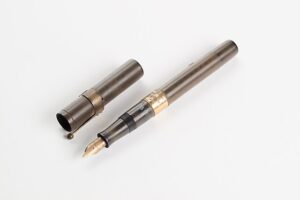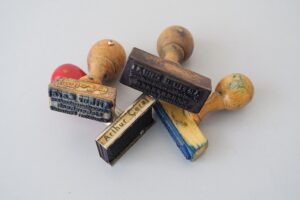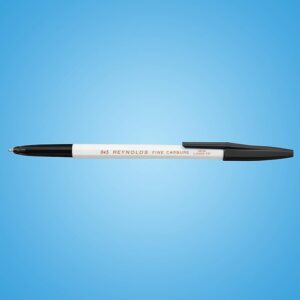The History of Personal Stationery
In the city of Chengdu, by the river Wanhua in 8th century China, the finest paper in the world was being pressed out of pulp using the clear waters of the stream. A woman of learning and love was about to invent a new kind of stationery.
Xue Tao was the daughter of a minor official in the city. She wrote poetry from a young age and after the early loss of her father, she became a hostess and courtesan in the local government machinery. She was a practicing poet, one of the few rare women in the field, and she realized that the large sheets of “Pine-Flower Stationery” (Songhua Jian) were too unwieldy to write short poetry on. She needed small sheets for notes and rhymes so she worked with the talented paper makers of her city to make some, and the world’s first personal stationery was born.

It was as a hostess that she was introduced to Yuan Zhen, a visiting official and poet in his own right. He was a decade younger than her and of a higher social cadre. Perhaps it was the mutual loss of their fathers when they were young. Perhaps it was a mutual love of poetry. Despite social taboos the two loved, and then they lost when Yuan Zhen went away to his home city, some say never to return.
Xue Tao was a passionate and intelligent woman and didn’t stop at shrinking paper sizes. She used the hibiscus flower which grows abundantly in Chengdu to color her paper and so Xue Tao Stationery (Xue Tao jian) got its characteristic pink or red hue.

Her blush-red stationery took over the Chinese world of poetry and letters. It became a symbol of romance and quality, and a tinge of personal longing, written about for centuries to come. It would birth the world of personal stationery we all know and love today.
In the following centuries, Chengdu would come to be called the City of Hibiscus. Also, perhaps spurred by the birth of letter-sized paper, the first widely used paper currency would emerge there, but those are other stories.
Xue Tao spent the rest of her life in Chengdu, writing poetry, making paper, and exchanging both with people. She became a respected mentor to poets and writers across the land. Her love story may have remained unfulfilled; we cannot know for sure as only a quarter of her poems survive. Her famous stationery is lost to the ages too, but her words exchanged with her distant lover remain.

The Peony
Poetry by Xue Tao
As last spring came to an end,
My tears wet the red stationery, lamenting our separation.
I never cease fearing exile from the Wu Gorge.
Why do we reunite at Wuling?
I always find the words for my love among fragrances.
Even without words, we know each other.
I want only to rest on the bed by the balustrade,
And speak endearments deep into the night.
Watch Inky Memo Reviews of vintage writing instruments on the links below,
- Bamboo Reed Pen – https://inkymemo.com/how-to-use-a-reed-pen-test/
- Dip Pen and Holder – https://inkymemo.com/dip-pens-test/



